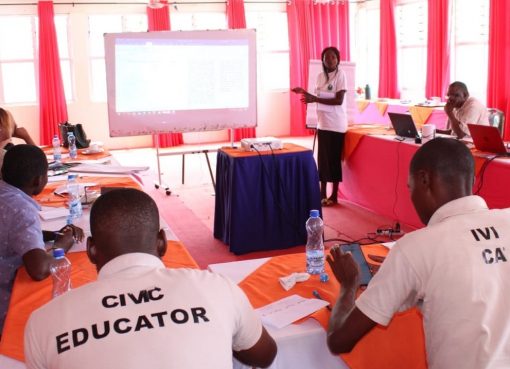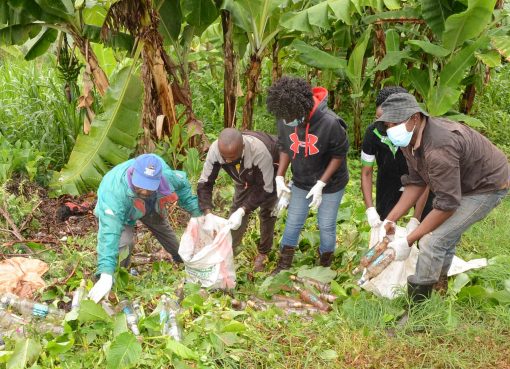The government has been emphasizing on crop diversification and value addition in Agriculture in order to meet one of its big four agendas, one of them being food security and as envisaged in Kenya’s Vision 2030.
The promotion of crops in areas that have been known to be growing just one particular crop, specifically maize, has widened with most farmers diversifying on crops such as avocado, macadamia and even coffee.
Rift Valley farmers who have been concentrating on maize farming and have been the breadbasket of the country for many years have now emerged as the new frontier in terms of high value crops mainly avocado, joining leading producers in the country from Central region such as Kiambu, Murang’a and Meru.

Currently Kenya, whose avocado production increased to 85 million kilogrammes this year from 70 million kilogrammes in 2020 is the leading exporter of avocado in Africa and among the ten world largest exporters.
Horticulture Crops Directorate (HCD) Director Benjamin Tito recently said Uasin Gishu and Trans-Nzoia are some of the counties in the North Rift that have in the last one year doubled the area under avocado production.
“North Rift counties are the ones to watch in avocado production in the next two years when the crops are bearing and there is a huge gap to fill in avocado production in terms of export and also ready market.
Micah Cheserem, a large scale farmer in Kapsosio area in Uasin Gishu and who embraced the government call on diversification says that farmers in the rift have now started venturing into avocado business, shifting to the high value crop due to poor prices and high cost of maize production.
“I started growing avocados in April 2017, it will be 5 years by next year and the idea was really to try and diversify crop production. I started harvesting in 2019 and my biggest harvest was in 2020 out of the 5800 trees in my farm,” he said.
Cheserem who is the former Central Governor of Kenya and who now together with his daughter have ventured into this high value fruit farming says that compared to maize, avocado earns him almost three times more of what he used to earn from maize in an acre of land.
“We specifically produce avocados for export and we normally grow Hass variety which is doing well in our farms but also there is ready market. As long as we follow through the good agricultural practices, avocados production is good and you cannot go wrong,” Cheserem says.
For Beatrice Toroitich, a small holder farmer from Kapsosio village in Moiben and who has also ventured into avocado production says she planted 80 trees of Hass variety in her one and a half acre of land in 2018.
The Hass avocado variety takes three years to mature and requires little water to survive and also produces good fruits and therefore is suitable in the region.
Toroitich who is a member of the Kapsosio Avocado Agri CBO which has 78 farmers says they were contracted by HABEX Agro Limited Company for the next 10 years to grow avocado for the export market in European market.
She explained that after being given avocados seedlings, she opted to change from maize production because of the challenges and disappointment when it came to pricing of maize.
“I now know that avocado farming is attractive because there is a ready market and the cost of production is low compared to maize farming. After two and a half years, my first harvest produced 10 kilograms from one tree which saw me get 800 kilogrammes. I in turn sold one kilogramme for Sh100 and out of the first harvest I made a clean Sh 80, 000,” she said.
In the second harvest, she explained that her yields increased to 20 kilogrammes per tree and she was able to earn Sh 160,000 and her third doubled this and she sold her avocados for Sh 300, 000.
“With avocados, you harvest almost three times in a year. If I was doing maize, I would have earned between Sh 25, 000 to Sh 30, 000 in a year,” said Toroitich.
Uasin Gishu County Executive Committee (CEC) member for Agriculture and Fisheries Samuel Yego acknowledged that avocado production is becoming a food of choice across the world noting that for Kenya it should be a plus being at the equator and enjoying almost 12 hours of sunshine and thus the country is able to harvest avocado when the rest of the world is not harvesting theirs.
“As a County we are proud to say we have the best climate. We have been talking to our farmers on diversification and also taking advantage of the market and demand by the European countries. We have so far supported them with close to 150,000 seedlings and this has seen close to 750 hectares of land produce avocados.
He noted that the County also boasts of having an international airport with a cold room that should be able to store perishable produce and land it to the market in a few days.
The CEC noted that they have realized that maize has less returns for the farmer as they would get close to Sh 64,000 on a good average per year but promotion of other high value crops should be able to boost farmers to sustain their daily production by earning more.
“When it comes to earnings, if one is making Sh100 for four mature avocados, a farmer will be earning not less than Sh200, 000 per acre for those initial years as compared to Sh 60, 000 they have been earning from their traditional crop maize,” Yego said.
Currently, he explained, there are some farmers in the County who are exporting avocados to the outside market and already reaping big.
According to Trans Nzoia County Executive Mary Nzomo, they have also been urging farmers to diversify and produce avocados which can substitute maize which has been the main crop of farmers in the area.
“We are aware that maize production has been affecting farmers in terms of expense and despite us being the bread basket of the country in maize production and knowing well that moving away from maize will affect the national production, we are working on a programme to open up new areas of producing more food under the Agriculture Sector Development Strategy (ASDS),” she said.
Antonina Lutta, a Senior Horticultural Officer from HCD under the Agriculture and Food Authority (AFA) in Nakuru County, said for farmers to gain good yields from avocado they require clean planting materials since traceability is key when it comes to export quality.
“Many farmers buy their seed on the roadside nurseries which do not use clean planting material. We advise farmers to always buy their seedlings from registered orchards or nurseries and recommend that even for a simple farmer, let them use forest soil, manure and sand in the ratio of 3:2:1 to have a good rooting media for their planting material and also give spacing of 5” by 7” when planting,” she advised.
Even as the Government continues to urge farmers to diversify, global prices of the avocado fruit has been on the rise since 2020, defying the COVID 19 pandemic disruption and international trade by hitting to a high of Sh 200 per kilogramme in the first quarter of 2021 which is good earning for farmers.
By Wangari Ndirangu





